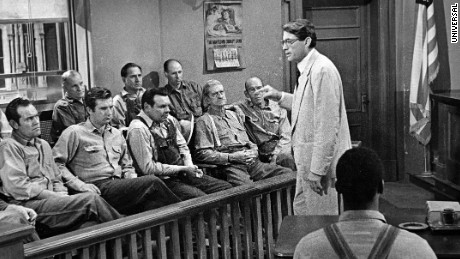
I was called for jury duty this week. Like clockwork, the postcard arrived in the mail just about 13 months to the day from the one that arrived last year, an unbroken chain of annual requests that stretches back for at least two decades. In the abstract, I welcome the idea that we the people participate in our civil processes to adjudicate the actions of our fellow citizens. In the concrete reality of the postcard, however, I would prefer not to.
This contrast of opposites—our desire for fairness and search for justice set against the practical realities of daily life plays itself out repeatedly—it has in history, it does today. I could not help but muse on the history of juries as I watched the drama of Congressional hearings and waited to find out if I would have to traipse down to the courtroom myself.
Trial of Socrates–Imagine the Jury Pool!
The use of juries—a group of potential peers—to weigh evidence in a trial has ancient roots but a far more restricted use and history than I realized. The word “jury” originally meant simply “to swear,” or “to pronounce a ritual formula,” an idea that ultimately transformed itself into the formula of law. This slightly differs from the origin of the word for “judge,” which meant “to speak about the law.” The Greeks used juries in one of the early recorded instances of the practice, although their juries were 300 to 500 men or more.

One of the most famous uses of the ancient Greek juries was in the 399 BC trial of Socrates. In eerie echoes of today, his trial was primarily political. Socrates aligned himself with a group of tyrants who came to power during a time of troubles in Athens. They were deposed, leaving the philosopher vulnerable to accusations which were legally described as impiety and corruption of youth, which was another way of saying “your side lost.” Plato wrote that the guilty verdict across the jury of 500 was pretty close. Only 30 more citizens were needed for acquittal. Socrates joked that if the vote was that close, his punishment ought to be free meals for life. The prosecutor suggested the death penalty instead and, rather than flee Athens, Socrates chose to stay and drink the hemlock, while posing for a vast number of historical portraits.
Marcia Clark Ain’t Got Nothing on the Furies
The Greeks were also fascinated by another legendary trial, historical or fictional, depending on whether you believe Heinrich Schliemann really found the ruins of Troy. As part of the whole Trojan War saga, characters were constantly killing each other, then having family members take revenge prompting more revenge etcetera etcetera etcetera.
Agammemnon sacrificed Iphigenia, his daughter, in order to appease the goddess Artemis after he poached in her sacred grove. This ticked off his wife so that when the Greek king finally arrived home ten years after successfully invading foreign soil (Trojan horse, remember?), Clytemnaestra stabbed him in the bathtub. She was probably also annoyed because Aggie killed her first husband, raped her, and forced her into marriage. Did I mention that the infamous Helen was also Clytemnaestra’s sister? And that she was also a sibling to Castor and Pollux, who weren’t only twins but part of quadruplets? For that part of the story, watch Orphan Black.

Anyway, after Clytie takes revenge, their son Orestes comes home and kills his mother and her new boyfriend to avenge his father’s death. After he commits matricide, he is pursued by the three Furies and runs into the Temple of Apollo. The Furies are having none of that, so Athena intervenes and sets up a trial. The Furies acts as prosecutor, Apollo is the defense attorney, and Athena appoints twelve jurors, including herself, to listen to the evidence. Both sides are pretty persuasive as the vote ends in a tie, but since Athena makes the rules, she decides the tie will end in favor of Orestes whose only penalty is to !surprise! dedicate an altar to Athena. Talk about bribing the jury!
Trial by Jury is The Thing
English King Henry II gets credit for reforming the legal system by adopting the 12-person jury structure to resolve legal disputes. Of course, the roots go back to before Henry and after Athena. The Danish culture, brought to England by the Vikings, was a pretty litigious one. The thanes liked to get together and argue, or debate in the “thing,” an assembly of free men. The minor nobles would preside, and often a group was appointed to serve as the “jury.” They completed their own research and fact-finding and so acted as prosecutors, defense, judge, and jury all-in-one.
King Henry–think Lion in Winter: “It’s 1187 and we’re all barbarians!–actually reorganized the legal system to consolidate his power. Legal proceedings at the time were a mishmash of rules and protocols that mixed together trial by ordeal, differing rules for church and state, and little distinction between civil and criminal proceedings. Heresy, treason, and letting your cows graze on the neighbor’s land might be indistinguishable from each other or treated differently town by town. Henry set down the rules, including the 12-man “self-informing” jury and the Grand Jury, or Grand Assize. He also married the ex-wife of the King of France, invaded Ireland, and killed the Archbishop of Canterbury–he was a busy guy!
The English continued to develop the jury system, even as both the Catholic Church and the monarchies continued to consolidate their own power. The notion of whether a single wise ruler could act better as judge than a group of common ordinary citizens played itself out repeatedly. The ruler or judge might always be subject to despotism; the common people might be poorly informed. Both could be subject to bribery.
Nevertheless, as the English expanded their territory, they exported the jury system as well. Eventually, the jury protocol popped up in France, Germany, India, and Hong Kong, among other territories. It certainly was exported to the American colonies along with the excessive fear of witches. As the decades progressed, however, many of the former English provinces eventually eliminated the use of juries and returned to a judge-based legal system. In India, for example, the constitution adopted in the mid-1950s did not include routine jury trials as juries were considered highly susceptible to bribery. Similarly, in most of China, juries were not used until only a few years ago.
Many countries still use juries for criminal trials, but they may limit them only to felonies or certain crimes. Only the United States impanels juries routinely for civil trials like the Vikings did, to handle whether a neighbor stole a cow or a technology company poached another company’s patents, which amount to the same thing. An estimated 80-90% of jury trials take place in America.

Who Exactly is My Peer? Who is Representative of Me?
We do love our juries in America and hate them as well. Like our invented system of democracy, the idea of judgement by a jury of peers is perfect in the abstract and flawed in execution. It’s not well remembered that the Lizzie Borden jury found Lizzie “not guilty.” It’s better-known that the OJ jury voted “not guilty” as well. We can look back at the deliberations of others and wonder what they were thinking, but we may not appreciate how difficult it is to make a decision based on limited information or a persuasive or emotional argument. It’s easy to rail at the decisions of juries, especially when most of us don’t want to be on one.
Our experimental system of law and governance is, after all, less than 300 years old. Clearly still a work in progress. It’s messy. Just like jurors sometimes don’t seem to think as I do, many of us find that representatives don’t seem to represent us. This is especially true in the sense that I agree with My Guy, but apparently vehemently disagree with something like 1/2 of the other members of Congress. But they, like My Guy, were elected with 65%+ of the vote, so if we all believe they’re biased, we somehow must disagree with each other. Or, we let bias creep in by refusing to participate (vote) or not holding elected officials accountable.
It seems especially clear that the crazy notion of “checks and balances” is getting a real work-out in this current era, to see if it really does work. These ideas were the ones rattling around in my head yesterday, watching Michael Cohen provide testimony to Congress. He was questioned, like Orestes, by Apollo and the Furies, by opposing groups in Congress who employed different approaches. Some seemed more interested in fact-finding and others seemed more interested in vengeance. All of this was played out for a jury of 300 million, each of us with our own bias. At least we have some level of transparency, which yesterday was CSPAN3.

I was glad that I was not called to go into downtown Oakland for the morning session in the jury green room, since it allowed me to stay home and watch while I waited to see if “On Call” would turn into “In the Jury Box.” At 11 am, I was also able to check the notices once more and hear the happy news: No Jurors were needed for this day, this service.
I’ve escaped having to judge the neighbor’s dispute over their cows for at least one more year.
